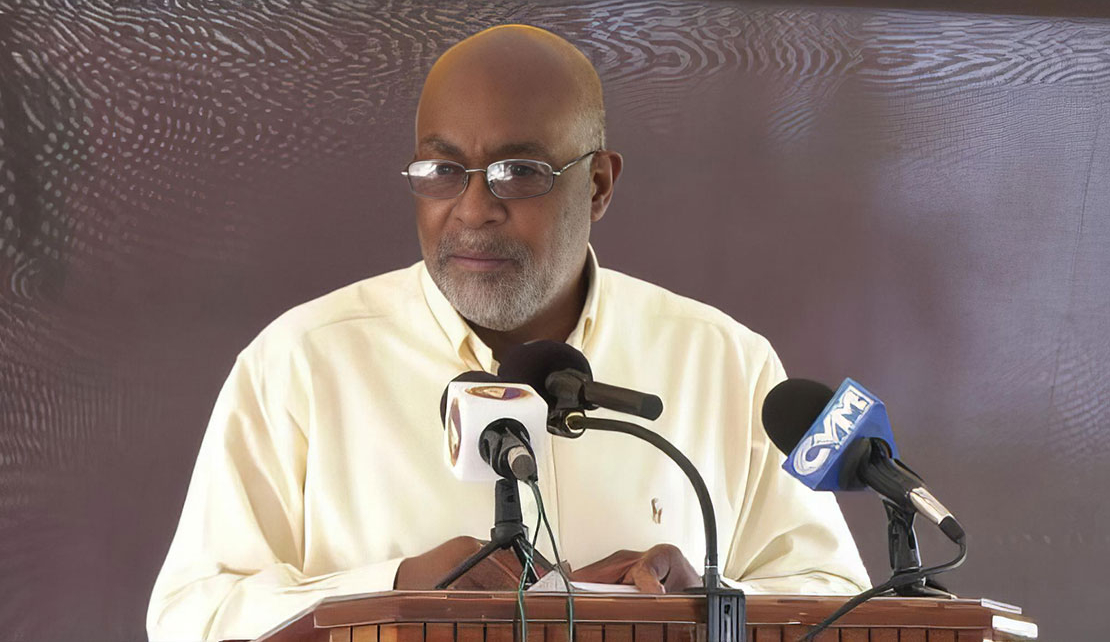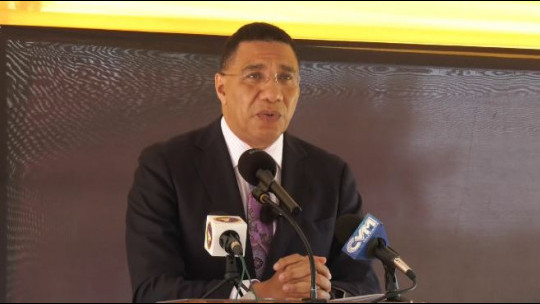JAMAICA | Fitz Jackson Lashes Government over "plans to Gerrymander" Portmore Boundaries

KINGSTON, Jamaica, December 21, 2023 - In a move that has stirred significant controversy, Member of Parliament for Southern St. Catherine, Fitz Jackson, has severely criticized the Jamaican government's plan to unilaterally alter the political boundaries in Portmore, St. Catherine in its determination to create Jamaica’s controversial fifteenth parish.
This proposed change, according to Jackson, is nothing short of gerrymandering, a manipulative redrawing of constituency lines that could potentially skew political representation in favor of the ruling party.
During a recent ceremony for the National Social Housing Programme in Clifton, St. Catherine, Jackson voiced his concerns about the impact of these boundary changes.
He argued that the new delineation, as proposed by the Ministry of Local Government, would sever parts of his constituency and that of Minister Terrelonge, leaving them without proper representation in the central government.
This move, Jackson contends, is a reversal of the successful, collaborative approach to boundary determination that Jamaica has followed since 1979, overseen by the Electoral Office of Jamaica.
Jackson specifically referred to a statement by Minister Everald Warmington, interpreted as an admission of the government's intent to engineer the boundaries for political gain.
"The remarks carried in the media by Minister Warmington reveal a blatant intent to gerrymander St. Catherine’s political boundaries to ensure dominance by the Jamaica Labour Party," Jackson stated.
He views this as a stark departure from the democratic and non-partisan processes traditionally used in Jamaica, describing it as an assault on the democratic gains made over the past four decades.
Fitz Jackson further criticized the government's reliance on the antiquated 1867 Counties and Parishes Act for the proposed boundary changes in Portmore.
He described this Act, originally intended to enable property owners to divide land and estates, as a relic of imperialist legislation now being repurposed for setting political boundaries.
"This use of an outdated law to redraw constituency lines in St. Catherine smacks of colonial-era tactics," Jackson argued, urging Prime Minister Andrew Holness to reconsider this decision and allow for a more democratic process.

Holness emphasized that the changes would likely affect uninhabited areas of the constituency, thus having minimal impact on voter representation.
"The concern seems less about the people's welfare and more about the potential loss of votes," Holness asserted, suggesting that the opposition's outcry might be rooted in political self-interest rather than genuine concern for democratic processes.
The debate over the boundary changes in Portmore comes at a critical time for Jamaican politics, highlighting the tension between administrative reforms and electoral fairness.
While the government defends its proposal as a necessary step towards better governance, opposition voices like Jackson's warn of a slippery slope back to a darker era of Jamaican politics, marked by electoral manipulation and corruption.
This dispute, unfolding in the public eye, has become a litmus test for the resilience of Jamaica's democratic institutions and the commitment of its leaders to uphold principles of fairness and transparency in the electoral process.
As this political drama unfolds in Kingston, the implications for Jamaica's democratic framework are profound.
The controversy over the boundary changes in Portmore is not just a local issue but a matter of national importance, highlighting the delicate balance between political strategy and the principles of democratic representation.
Fitz Jackson's vehement opposition to the proposed changes, and his reference to historical precedents and legal frameworks, underscores the ongoing struggle to maintain electoral integrity in Jamaica.
The use of the 1867 Counties and Parishes Act in the boundary redrawing process has particularly drawn scrutiny.
This act, rooted in colonial times, now serves as a focal point in the debate over modern-day governance and electoral fairness.
Jackson's call for Prime Minister Holness to reconsider the proposed changes reflects a broader call for preserving democratic norms and practices in Jamaica.
The outcome of this boundary dispute in Portmore, St. Catherine, will not only shape the political landscape of the area but also set a precedent for how electoral matters are handled in Jamaica.
It raises crucial questions about the balance of power, the role of historical laws in contemporary politics, and the commitment of Jamaican leaders to democratic ideals.
As both sides of the political aisle continue to voice their positions, the eyes of the nation remain fixed on this unfolding saga, awaiting a resolution that respects the democratic ethos of Jamaica.
